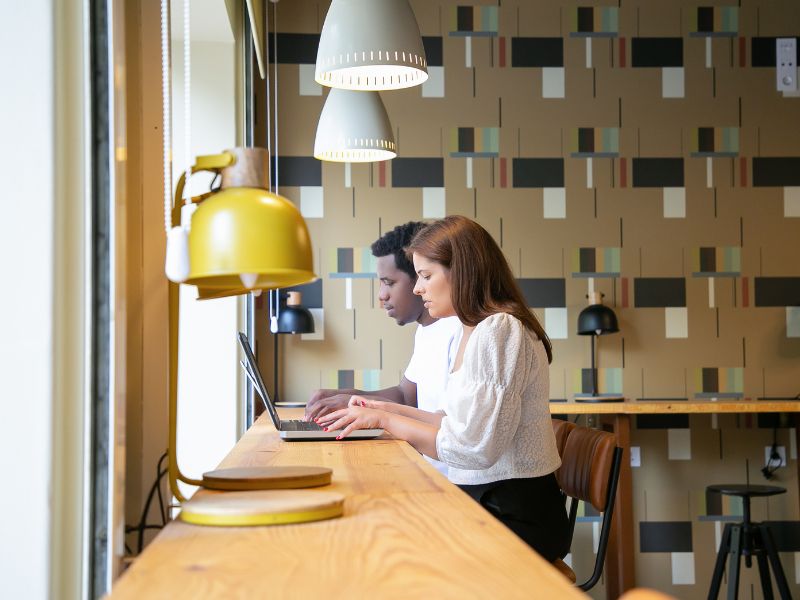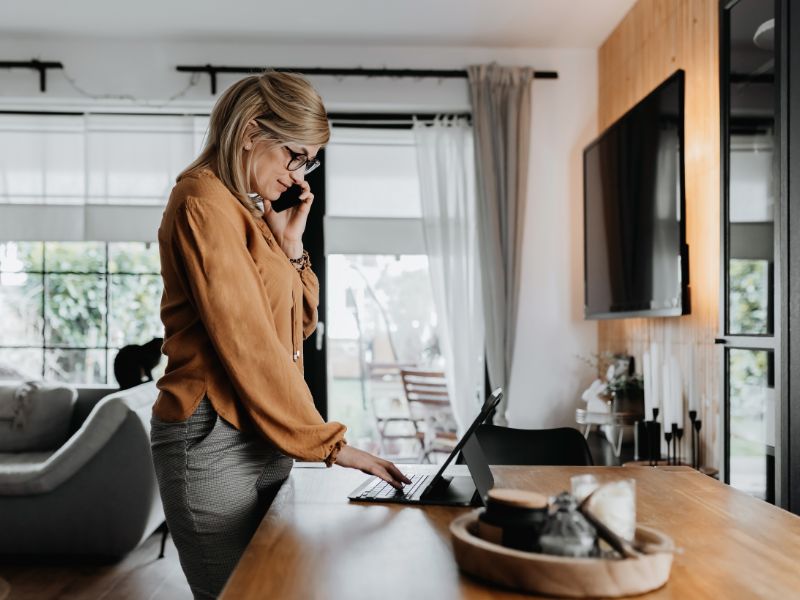Article provided by Jamie Mackenzie, Director at Sodexo Engage
 The government’s roadmap out of lockdown has induced sighs of relief across the nation.
The government’s roadmap out of lockdown has induced sighs of relief across the nation.
While we’re dreaming about what freedom has in store for us – including a trip to the pub, a first meal out or a well needed trip to the hairdresser, there is still a degree of uncertainty ahead of us, particularly when it comes to business. With so much uncertainty still lying ahead, business leaders need to continue prioritising staff wellbeing while fostering an environment that encourages staff to manage their work-life balance effectively.
Research has found that prolonged lockdowns and home-working have contributed towards a blurring of the lines between personal and work-life. Specifically, 52% of employees agree the boundaries between work and home life are becoming increasingly distorted – a 40% increase from February 2020. Separately, one in five (19%) are also troubled by work interfering with their home and personal life.
The truth is, we are all guilty of becoming glued to our screens, and the prospect of taking a full hour for lunch or taking a minute to catch up with colleagues has become non-existent for many in a home environment. Indeed, 65% of people agree that modern technology is very much guilty in this, and exacerbating the feeling of an ‘always on’ culture.
But this is not productive, and certainly not sustainable. Staff are at the heart of businesses, so it’s absolutely critical that now, more than ever before, businesses are throwing every resource possible into looking after the wellbeing of its staff, preventing burn-out and low productivity levels.
Make the first move
The truism ‘you get what you give’ is tailor-made for workplace engagement. If wellbeing is prioritised amongst a workforce, research shows employers will see a positive impact on motivation, commitment and in turn, an increased financial gain. But employers need to make the first move and remind staff that it’s important to take some time away from the home office. Whether that’s taking a proper lunch break, logging off on time and having an evening off rather than working into the night, or taking half an hour to go for a walk and get some fresh air.
Recent data shows a third of UK employees never leave their workplace after they arrive in the morning. More than half (56%) don’t take their full lunch break, as they feel too overwhelmed with work tasks to carve out time in the middle of the day to step away from their desks. In today’s pressure-filled workplace, 68% of those surveyed justified skipping lunch saying they had too much to do or an unexpected task to handle.
But something as simple as a lunch break can have a significant impact on both the employee and employer. Not only does it affect productivity levels, but it can have far wider implications on business performance. Taking a proper break helps employees to stay alert, focused, and performing at their peak. As such, it’s critically important that businesses urge their staff to take these regular breaks and encourage a culture where it’s ok to take some time for yourself – no matter how busy you are.
Furthermore, encouraging physical activity, providing access to health professionals and normalising sick days and time off for medical appointments are all ways organisations can safeguard their employee’s mental health and improve work-life balance. Ensuring sick days are not taboo, perhaps through clear disclosure of the company’s sick day policy and allocated benefits, will mean staff aren’t clocking on despite feeling poorly.
Flexibility remains key
Even before the pandemic, the issue of flexible working and work–life balance was becoming increasingly higher up on the agenda for employees, and put simply, it had become clearer that businesses who did not offer flexible working of some type risked missing out on top talent.
The good news is, the pandemic has made many employers who perhaps thought homeworking was impossible or too much work, realise it’s achievable for business to carry on as usual with staff working remotely. CIPD research shows almost two in five (37 per cent) of employees will now be working from home on a regular basis once the crisis is over, compared to just a fifth (18 per cent) who did before lockdown.
Flexibility has become increasingly important for working parents, too. Indeed, two-fifths of parents are home-schooling their children during the coronavirus outbreak while holding down a full-time job, with 21% having to reduce work hours due to remote schooling.
As we come out the other side of Covid-19 restrictions and some normality returns, workplace flexibility will remain a key driver behind positive work-life balance amongst staff. Workplace flexibility looks different for different individuals, so employers should get ready now and be prepared with ways to implement flexible working to suit a variety of lifestyles in ways that work best for them.
A flexible work environment doesn’t only help workers achieve greater work-life balance, leading to increased employee satisfaction and improved morale – but also boosts loyalty, engagement and retention – all factors which contribute to a reduced employee turnover, meaning costs to recruit and train new hires are cut.
Be present
Working from home has put an end to the daily social interactions everyone has in the office, whether it’s catching up while the kettle’s boiling or popping your head round a desk to talk about the weekend – these are all incredibly important morale boosts that are no longer possible. And without that physical presence, it’s harder for colleagues and managers to see when someone is struggling.
By organising regular check-ins with staff on the phone, rather than only focussing on to-do lists, these should provide an opportunity for employees, especially those with caring responsibilities, to discuss their capacity and ask for help. These communications should touch on non-work-related topics and will go a long way to strengthening social wellbeing, with employees knowing they have support if they need it which goes far in preventing stress.
From worries about pay cuts to the anxiety of living and working during a pandemic, there’s plenty of pressures being placed on employees right now. For an organisation to support healthy wellbeing and a strong work-life balance, it’s vital that proper mental health support is in place. For some, more professional support may be needed during these challenging times. That’s why offering benefits like an employee assistance programme can give staff confidential access to professional mental health counsellors when they need it most.
Sow the seeds now – reap the benefits later
The crisis has been on the top of everyone’s agenda since the outbreak began. This includes many businesses focusing on protecting cash reserves and survival plans through lockdown. It’s so easy to cull investment in areas that are not seen to directly contribute to short-term survival in a tangible way, but making provision for strong wellbeing and engagement policies cannot be understated – after all, staff are a business’ most valuable asset.
Covid-19 will leave its mark in years to come in more ways than one. In particular, the pandemic has thrown the topic of work-life balance even further into the spotlight – and it’s here to stay. New recruits will choose their future employer based on wellbeing policies and how an organisations looks after its staff. Sow the seeds now, and you will reap the benefits in the future.
 About the author
About the author
Jamie joined Sodexo Engage in November 2013, bringing with him over 10 years of Business and Consumer Marketing experience in senior roles within blue chip organisations. Jamie is responsible for company strategy, product roadmap, brand management and market communications.
If you are a job seeker or someone looking to boost their career, then WeAreTheCity has thousands of free career-related articles. From interview tips, CV advice to training and working from home, you can find all our career advice articles here.








